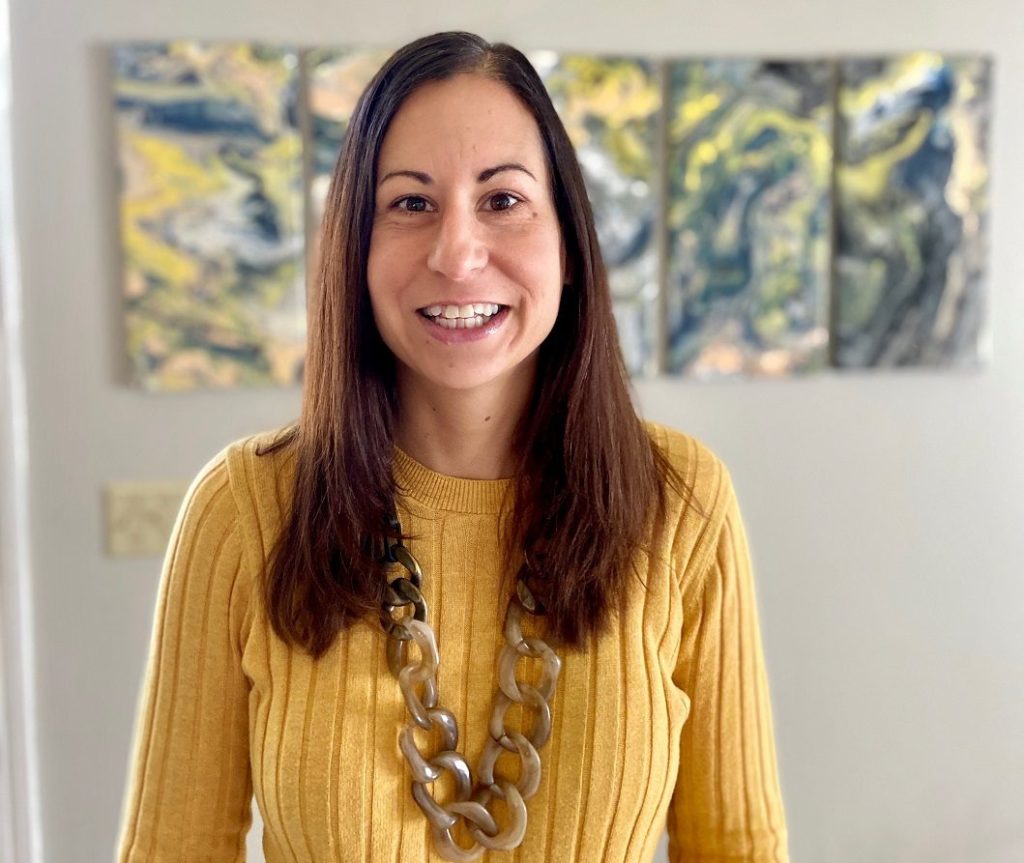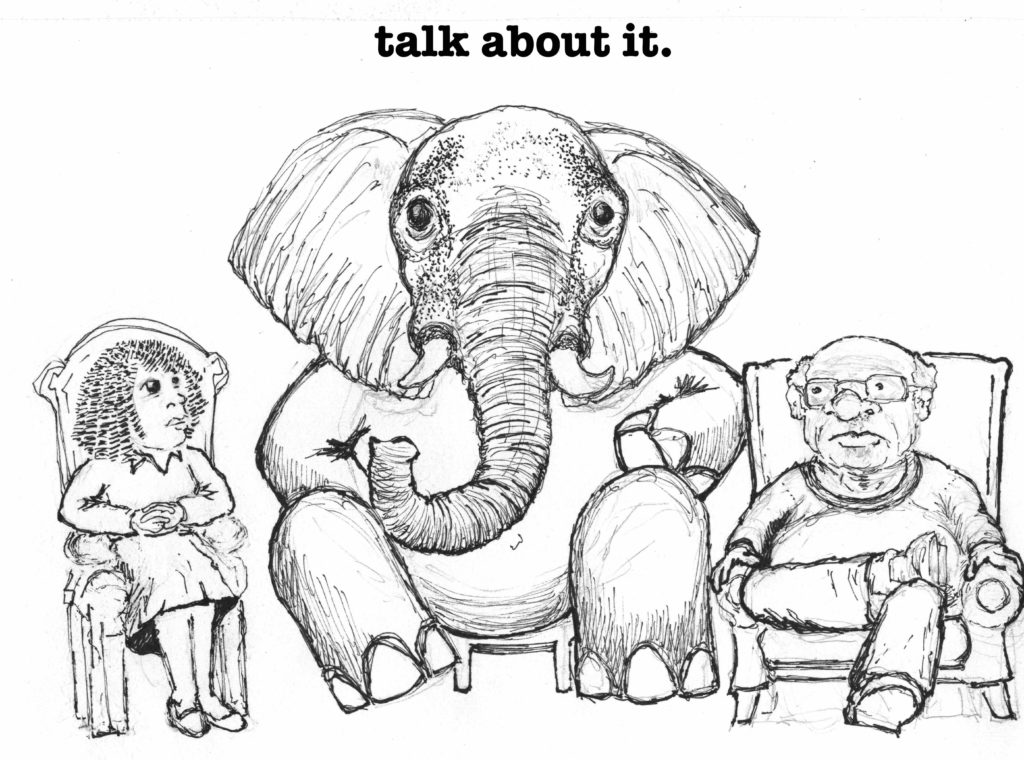Facebook Live Series: Tools for Connection and Wellness
Author: Hospicare
Tips & Resources for Grieving the Death of a Loved One During Covid-19
VIDEO: Spiritual Guidance with Edie Reagan
Facebook Live Series: Tools for Connection and Wellness
VIDEO: Therapeutic Harp with Jayne Demakos
Facebook Live Series: Tools for Connection and Wellness
Grieving From Afar
By Laura Ward

The COVID-19 pandemic has changed our lives in so many ways including the devastating impact on how we are able to mourn the death of our loved ones. When a death occurs, we have patterned ways of responding based on tradition, culture and religious beliefs.
These responses are comforting for both the bereaved and for those providing support. Soon after receiving word of a death, our support system mobilizes. People often begin showing up with food or flowers, jumping in to care for the children of the bereaved offering to run errands or help arrange a memorial event. Cultural or religious beliefs provide ritualized ways to mourn which offer comfort in their significance and predictability. These rituals mobilize community support for the mourners. Muslim communities wash the body, wrap it in a piece of cloth and bury their dead quickly and in the presence of loved ones. This allows the soul to rest peacefully. Christian and Jewish traditions call for close proximity with the dead in order for those left behind to confront their loss. Events such as Repass, and Shiva allow survivors to find refuge in their communities. In some cultures, those close to the bereaved will take turns sitting vigil with the family for days or even weeks after a death.
During this health crisis, social distancing has made it so that people are unable to grieve their loved ones in traditional ways. Without these rituals and the opportunity to be in the presence of the person who has died, see the casket and be around other people grieving the deceased, it can be harder for those grieving to make sense of the loss and eventually accept that their loved one has died. Having traditions to follow and a set of rituals enables people to integrate the loss into their life. Without this element of face-to-face support and left alone in quarantine, people experiencing losses may suffer more due to the isolation necessary for social distancing. Social isolation has also been shown to prolong grief.
In addition, we are in a stressful time, people are experiencing many losses beyond the death of a loved one ― including the loss of a job, savings, sense of identity and more. These additional stressors can get in the way of grieving normally, additionally those who would normally support the bereaved might be distracted by these stressors in their own lives and may be less emotionally available to provide support. Also, people are overwhelmed with fears about contracting the virus or losing more loved ones to COVID-19. These all-consuming feelings may prevent people from acknowledging their grief, but it’s important to create space for it. Delaying grief is not healthy and can lead to long-term physical and psychological challenges. Instead of holding grief in, find new ways to go through the grieving process and say goodbye to your loved one within the limits of social distancing.
You don’t have to be alone. It’s important to avoid withdrawing from friends in your grief even though we can’t support each other in person at this time. The best thing we can do when we are grieving it to reach out as much as you can to family members through phone calls and video platforms. Friends and family members can gather via chat conference to talk about their lost loved one, share memories or simply cry together and know they aren’t alone in their grief. Sending emails and letters to people in your network is another way to take part in a collective grieving process. I have often had clients speak about how meaningful it is to receive letters which include personal stories or experiences of their loved one that has died. Some families or group of friends start group text chains to check-in or share memories or thoughts of the deceased. The key is to talk to someone else about your feelings, rather than keep them bottled up. It’s important to find connection in whatever ways you can. Being intentional about the emotional bonds that are still present can provide some comfort, this is not the same as being able to have a hug or to sit together in close proximity but the virtual connections can be a way in which the emotional connections can be expressed where we are at now. If you lack the motivation to follow through on connecting, try to book times for phone calls and video chats. Arrange these conversations as appointments you must keep. Agree on times with people in advance so you are more likely to follow through. Of course, choose to connect with people who provide healthy support, are responsive and flexible about your needs. The amount of contact we need and want can vary on a daily basis and it’s helpful to connect with those who are understanding of this.
Funerals and memorial services are valuable both on a practical to provide structure in that they give people tasks and a way of coming together to grieve. They provide confirmation of the death though being able to view the body and grieve in community. Physical touch through hugging our love ones is incredibly healing. This coming together also empowers social support and connection, reassuring us that we are not alone in our loss. Celebrating a loved one’s life in a public group setting with others is a very healing part of the grieving process, but social distancing and stay-at-home orders mean many families must delay memorial services for an unknown amount of time. The uncertainty of when they might be able to honor their loved one in this way is difficult and anxiety-provoking. Recognize that this is temporary and although there is a delay, these services can still take place and it is important that they do in order. It can be helpful to think of these services as being delayed rather than cancelled.
Depending on where you live and how you’ve been social distancing, you may be able to have a small service with immediate family, and there are ways to include others in the experience. Many funeral homes are offering livestreaming of graveside services or larger, interactive virtual funerals. Some allow immediate family the right to attend the burial process, while still following the CDC recommendation of no more than 10 people gathering in the same space. Mourners can still drive by in their vehicles in a parade, staying in their car while offering their respects. Others have offered drive-thru windows with a video of the person on a monitor or in-person visitations with two people allowed in at a time and disinfecting between visitors. One benefit of virtual funerals is that people who ordinarily might not be able to attend services, due to living far away, finances or even a discomfort with grieving in public, are now able to participate. However, this process will not work for those who do not have or are uncomfortable with technology. It’s unclear when traditional funerals and grieving rituals will be an option in the future, but that doesn’t mean it’s impossible to process your grief and move forward in this uncertain time. Recognize your feelings of grief, loss and sadness as normal during this time.
Identify and acknowledge any thoughts feelings that arise and let yourself move through them. A wide range of feelings are normal during grief and it is often described as a roller coaster of emotions. Expressing whatever comes up can be helpful and writing out your feelings can be a therapeutic experience in times of grief. You can keep a private journal for your eyes only or even write a tribute to share with loved ones. Some people find healing through writing a letter to the deceased. Remember the times you spent together and share these memories with loved ones. Looking through photos can bring comfort, creating a photo slide show or music playlist can be another way of honoring and celebrating the relationship with your loved one. Just like a written tribute, it can be shared now online or at a future memorial service. Make a memory box, draw or scrapbook. Engaging children and adolescents in these activities can also give them an avenue to process their grief. Consider other rituals that will allow you to express your grief now…light a candle, create some art in their memory, plant a tree or cook your loves one’s favorite meal.
Generate a plan for coping. Ask yourself how you usually take care of yourself during a difficult time and modify these to work in the current situation. You can still do things like read, take a bath, go outside, eat healthy meals and nap. You might find it useful to think about how your lost loved one would like you to respond in these circumstances. You can use this exercise to help generate coping strategies. Recognize that less activities in our lives make more time for thinking and feeling, this can be good and also overwhelming. Distract yourself on occasion with activities you enjoy or try something new. Moderate your news intake and be gentle with yourself around fear related to the pandemic.
If more support is needed, reach out to the professionals. Grief support is being offered online by many hospices and mental health professionals including Hospicare. At Hospicare, we offer both individual and grief support in an online format. There are social media groups for grief support as well as many online resources. At hospicare.org/blog you can watch videos made by our interdisciplinary team with tips, resources and activities to cope with grief. Connecting with online communities of grieving people help grievers feel less alone. Talk to your doctor if you are experiencing physical symptoms of grief. Grief is hard, it’s a different experience for everyone and there is no right way to grieve. Practice self-compassion, allow yourself to have a good cry and take good care of your mind and body during this challenging time.
End-of-life planning conversations are hard, and now is the time to have them
by Lucia Jander, M.D., Medical Director at Hospicare & Palliative Care Services

End-of-life. Dying. Death. These words make people so uncomfortable that they often soften them. We talk about loved ones who “passed away,” or “lost a battle,” or “went to heaven.”
There are many reasons to view COVID-19 as a dark time for our community and our world. It is. If there is a silver lining to a pandemic, it is that it makes people confront their own mortality, to think about their wishes, and – I hope – to become a little more comfortable with death as a part of life. This is a good time to open the door to those conversations with loved ones.
In hospice, every patient and family works with staff to develop a personalized care plan. Each patient shares with us their preferences for physical, emotional, social, and spiritual care. Some patients may desire music therapy; others may want help making amends with their family. Just as every person is unique, there is no “one size fits all” approach to end-of-life care.
How do you imagine your end-of-life experience? What medical or life-sustaining care do you want?
Who are the family and friends who will be most impacted by your death?
What do you want your legacy to be?
You don’t need to be sick or in crisis to have these conversations. My advice to my patients is to start with yourself. Spend time thinking about your desires, and what you want to articulate to your loved ones. Think of this process as creating peace of mind for yourself and a gift to the people who love you most.
Once you have your own thoughts together, here are some resources to get started:
Having the Conversation

Although end-of-life planning is critical for adults at every age, it can be difficult to find a way to introduce the topic of conversation to your loved ones.
Try to remember that by having the dialogue, you are doing your loved ones a favor because they won’t have to guess your wishes.
A Living Will is a legal document, that you can provide to your loved ones and your health care proxy to explain your decisions about your end of life. A document like “5 Wishes” can help you think about medical, emotional and spiritual questions, providing a structure for you to reflect on these issues and start the conversation with your health care proxy, other medical providers, and your family.
Medical Decisions
A Health Care Proxy is a legal document designates a person who will make health care decisions only if you are unable to make them yourself. Because it is difficult to know all the choices that will need to be made, it is important to appoint someone you trust and who knows your core values. Be sure that every one of your medical providers has a copy of this proxy, keep a copy at home, and send a copy to your attorney, if you have one. It’s also a good idea to think about naming an alternate proxy, in the event your primary proxy can’t perform their duties; make sure both individuals are unified around you and your expressed desires.
A Medical Orders for Life Sustaining Treatment (MOLST) form outlines your wishes for the end of life in the event you cannot make this decision yourself. If you do not have a Health Care Proxy, this document will guide medical decisions. If you do have a Health Care Proxy, this document can guide their choices on your behalf.
A Do Not Resuscitate Order (DNR) determines what life sustaining measures, if any, you would like if your heart has stopped beating and you are not breathing. While a DNR can stand alone, it is also a part of the more comprehensive MOLST form.
Financial Decisions
A Durable Power of Attorney names someone to make financial decisions when you can no longer do so. If finances are complicated or there are exceptions to the use of your money, this document can be drawn up by a lawyer.
A will indicates how your assets and estate will be distributed upon death. The person you name within your will as the executor is responsible for ensuring your wishes are met. Your will may also specify arrangements for care of minors, gifts to loved ones or favorite charities, and funeral and/or burial arrangements
A living trust provides instructions about the person’s estate and appoints someone, called the trustee, to hold title to property and funds for the beneficiaries. A living trust can provide a detailed plan for property disposition.
Other Considerations
If you’d like to be an organ donor, you can fill out an organ donation card and carry it in your wallet. In New York State, you can also have this choice listed on your driver’s license by contacting the DMV.
Put together important documents and information so that they are easy to access in a time of stress or uncertainty. Among items to consider putting together in a safe place, ideally in a fireproof box:
- bank account numbers, both checking and savings
- insurance policies
- investment account details
- safe deposit box keys
- Social security card and other identification like birth certificates and passports
- Utility and other monthly billing information
- mortgage, deed, or lease for your home or residence
- vehicle title
- Internet account numbers and passwords, including subscriptions and email accounts
- Important phone numbers for family members, your lawyer, doctor, and financial planner, pastor or priest, and your preferred funeral home.
***
Dying is not something we can – or should soften. Death is a part of life, and planning for it can make all the difference to the emotional health of those you leave behind.
If you need help connecting to resources, or ideas for how to start this process for yourself, please contact us at Hospicare. We are here to support residents of Cortland and Tompkins counties, and we speak to individuals and groups about the importance of end-of-life planning. Our goal is always to make your wishes are expressed and respected, so email info@hospicare.org or call 607-272-0212 with any questions.
***
Talk About it Artwork by Scott Brown.
Best wishes Jayne Demakos
Hospicare wishes Jayne Demakos much joy and happiness as she embarks on a new adventure – and her dream job as a full time music-thanatologist! Jayne will be providing her beautiful harp music to patients and families at St Peter’s Hospital in Olympia, Washington. So many Hospicare families have benefited from Jayne’s music and compassion for many years, and she will be sorely missed by our community. Best wishes to you, Jayne!
VIDEO: Advanced Planning with Kira Lallas
Facebook Live Series: Tools for Connection and Wellness
VIDEO: Mourning from Afar with Laura Ward
Facebook Live Series: Tools for Connection and Wellness
VIDEO: National Volunteer Appreciation Week
From all of us at Hospicare, we are grateful for each one of you and couldn’t carry out our mission without you on the Team! Thank you from the bottom of our hearts!